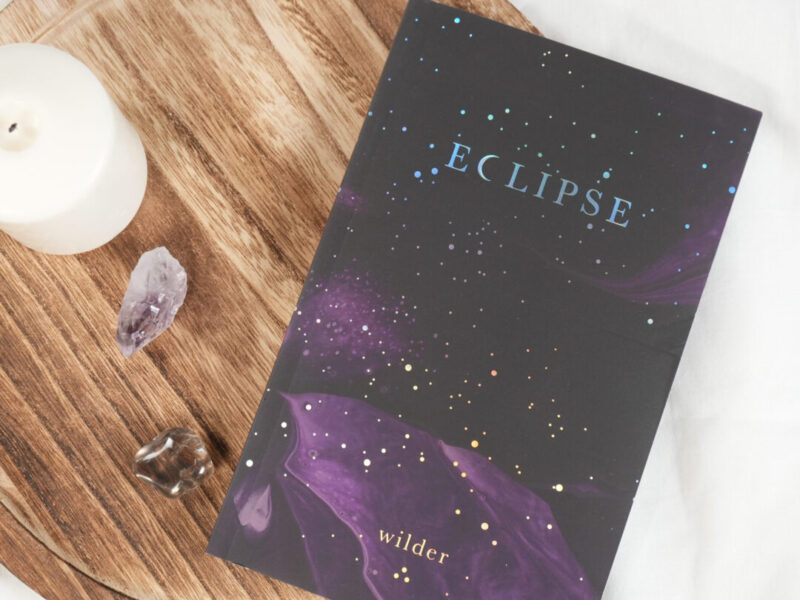4 Writers to Read to Understand Disability Poetics
Poetry is a powerful exercise in amplifying often overshadowed or silenced voices, able to bring to light lived experiences and writing from the body of writers. This trait of the genre can be felt even more distinctly in disability poetics, a school of poetry that highlights a wide range of disabled poets. Their work emphasizes what it’s like to live within non-normative bodies and minds, as well as how disability intersects with other identities.
Within the last few decades, disability poetics has become a more widely known movement and community, spanning literary journals, anthologies, conferences, writing collectives, and more. While one of the most fascinating and valuable parts of the disability poetics movement — also called the crip poetics movement by those in the community — is its endless breadth and nuance, here are just a few writers to grow your understanding and appreciation.
Jennifer Bartlett
Jennifer Bartlett is one of the leading voices in the disability poetics movement, having served as both an editor for the foundational anthology Beauty Is A Verb: The New Poetry of Disability and as a founder of Zoeglossia, a literary organization that sponsors an annual retreat for disabled poets. She has published three collections, most recently Autobiography/Anti-Autobiography. Bartlett’s poetry sharply considers the role of everyday language, speaking to how the outside world defines disabled people and pushing back against this by illuminating how disabled people define and contextualize themselves. In her poem “[to walk means to fall],” Bartlett portrays disability both beautifully and sonically: “A movement spastic / and unwieldy / is its own lyric and / the able-bodied are / tone-deaf to this singing some / falling / is of its own grace.”
Stephanie Heit
Stephanie Heit considers neurodiversity to be its own art form, correlating it with her other artistic practices of writing and dance. She has published two collections, most recently a hybrid work of poetry and memoir titled Psych Murders, and has won the Midwest Book Award for Poetry and been a finalist for the Nightboat Poetry Prize. Much of her work considers the different meanings of asylum, as well as grapples with how the psych system can abuse and stigmatize disabled people. Her poem “ETC. The Resistance” embodies these large and profound themes, written to resist electroconvulsive shock therapy and as a call to action for others to question and fight for their autonomy within the psych system. “RUN. Get up otu of the gurney & get the hell out,” the poem, written as an epistolary, reads. “NOW. Slip your wristband off & make like a normate out of there. You may be like I was – indifferent, deathwish-ridden, an easy consent signature. Take my word. Take my body. Better, take my mind as amnesiac evidence.”
Cyrée Jarelle Johnson
Cyrée Jarelle Johnson writes at the intersections of disability, queerness, and Blackness. They are a Diversity, Equity, and Inclusion librarian and a poetry editor for the Deaf Poets Society. Their poetry centers queer and disabled joy, often emphasizing dance, music, sex positivity, and the role of community, while confronting and resisting dark systems of power that this joy must rise in spite of. In other words, Johnson celebrates the nuanced, unique joy that’s cultivated on the margins. Take their 2020 Lambda Literary Award winning collection Slingshot, described as “messy, horny, desperate poems spun from dream logic.” This hard-won, communal joy can be seen in Johnson’s poem “Autistic Heaven,” which begins, “Autistic Heaven has a room for every autistic / and rooms for many autistics to ramble, wander / wonder aloud at a musing that would bore those / left on their earth, those who sent us through / the gaps in creation.”
Alayna Powell
Alayna Powell writes both about living with disability as a Black woman and writing about living with disability within a religious tradition and community. The spiritual element of her poetry is one of its strongest, illustrating how disability transforms every aspect of someone’s worldview and belief system. Powell is currently an MFA student at the University of Alabama. In her poem “The Tongue Does Not Believe,” Powell writes against the portrayal of disabled people as always innocent and angelic, almost childlike, instead stepping into a complex vengefulness: “It’s almost like the tongue has an empty stomach / and a taste for justice – whatever that may be, on any given day. / No, it wasn’t hunger that compelled me, but spite: hardened / in the space between my teeth, making home out of a nothingness / so minuscule that only darkness could attest for it. / It’s almost as if the tongue is saying I shouldn’t have to feel this way and she’s right. / There are many things in life that faintly resemble Go, and once in a poem I swore / she looked like me.”
Wanting to read more poets writing within disability poetics? Pick up an anthology like In Between Spaces or We Are Not Your Metaphor to get introduced to even more voices.




